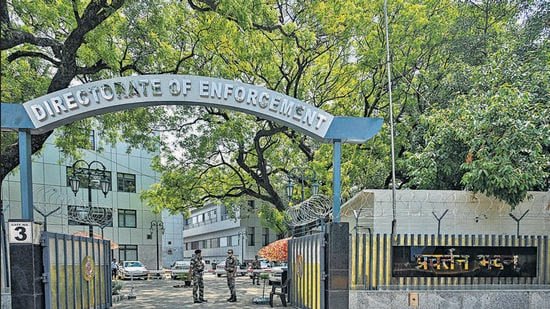Supreme Court On ED : The right of arrest, confiscation of property and attachment is right..


Supreme Court On ED Powers, PMLA Provisions: Mukul Rohatgi, Kapil Sibal, Abhishek Manu Singhvi, Maneka Guruswamy… More than 240 petitioners against ED had brought up all of these eminent lawyers on their behalf. But, neither of their arguments went on in the Supreme Court.
The Supreme Court, while stamping the provisions of PMLA, rejected the arguments of big lawyers. Eminent lawyers like Kapil Sibal, Abhishek Manu Singhvi, Mukul Rohatgi had descended to oppose the powers. There was an army of eminent lawyers representing more than 240 petitioners. All these arguments went in vain before the Supreme Court. SC upholded ED’s rights under PMLA to deal with arrest, attachment and confiscation. The court clearly said that nothing in the provisions of section 19 of PMLA ‘does not amount to arbitrariness’. The court said that money laundering has a direct bearing on the sovereignty of countries. The court said that it becomes necessary for the state to enact such laws in order to prevent damage to the ‘economic structure’ of the country. The court said that it is the duty of the state to provide social, economic and political justice. The talk of ‘social, economic and political justice’ has been said in the preamble of the Indian Constitution.
Which lawyers had come out against PMLA?
The Supreme Court delivered this verdict on 241 petitions challenging the validity of the provisions of PMLA. Eminent lawyers appeared before the bench of Justice AM Khanwilkar, Justice Dinesh Maheshwari and Justice CT Ravikumar. Senior advocates like Kapil Sibal, Siddharth Luthra, Abhishek Manu Singhvi, Mukul Rohatgi, Amit Desai, Maneka Guruswami, S Niranjan Reddy, Aabad Panda, Siddharth Agarwal, Mahesh Jethmalani, Vikram Choudhary argued on behalf of the petitioners. Apart from this, advocates like Abhimanyu Bhandari, N Hariharan and Akshay Nagarajan also appeared for some of the petitioners. At the same time, Solicitor General Tushar Mehta, Additional Solicitor General SV Raju and Panel Counsel Kanu Agarwal appeared on behalf of the Government of India.
Money laundering cannot be called a crime less heinous than terrorism.
– Supreme Court
Important observations of the Supreme Court in the 545-page decision –
Money laundering is one of the heinous crimes, which not only affects the social and economic fabric of the nation but also promotes other serious crimes like terrorism, offenses related to NDPS Act.
– Supreme Court
Importance of PMLA
There are many such provisions in the Prevention of Money Laundering Act (PMLA) which makes it a strict act. For example, the right of search has been given even without registering an FIR. As soon as the ECIR (Enforcement Case Information Report) is filed, the accused gets the right to confiscate whatever property is there. The property remains confiscated until the accused is acquitted. The accused does not know what grounds the agency has for arresting him. The ED officers can also take the accused into custody during the summons.
The government also informed that so far 4,700 cases have been investigated and 338 cases have been registered. Along with this, 313 people have also been arrested. There are adequate safeguards for whatever property is attached before the FIR and chargesheet. If the property is attached, the ED officials explain its need and grounds.
Against which leaders is the ED currently active?
Senior Congress leaders Sonia Gandhi, Rahul Gandhi, P Chidambaram, his son and MP Karti Chidambaram, Shiv Sena leader Sanjay Raut, National Conference leader Farooq Abdullah, West Bengal Chief Minister Mamata Banerjee’s nephew and Trinamool Congress leader Abhishek Banerjee and Several top opposition leaders, including Delhi minister Satyendar Jain, are facing ED probe over alleged money laundering.
DISCLAIMER: The author is solely responsible for the views expressed in this article. The author carries the responsibility for citing and/or licensing of images utilized within the text.
